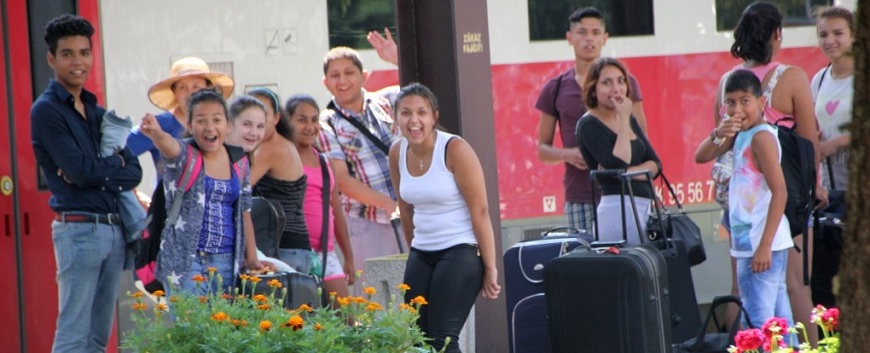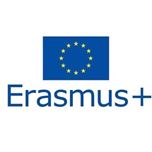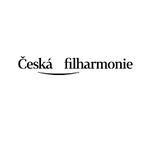Romano drom 2016 - preparations
Romano drom Summer School for talented Roma children from deprived localities to take place in Šluknov region: Sixty Roma children from the Czech Republic and Slovakia will spend two inspirational weeks full of music and dance thanks to the team of Ida Kelarová and musicians from the Czech Philharmonic as part of the Romano drom summer school. This year the school takes place between July 30 and August 13 in the Šluknov region. The idea is to teach children that talent alone is not enough; it must be developed and nurtured.
Ida Kelarová and her artistic team prepared this year’s summer school with the organizational backing of MIRET, z. s. and the Czech Philharmonic. The Romano drom summer school (in translation the Roma Way) is targeted at talented Roma children aged from 12-18 from socially deprived families in Roma ghettos and settlements from across the Czech Republic and Slovakia. During the two weeks, these children will better get to know themselves, their identities, and traditions. Together, they will be able to create something that is both powerful and beautiful.
The 60 children taking part were chosen during competitions held in March and April across the Czech Republic and Slovakia. Participants will converge on Jiřetín pod Jedlovou from the following places: Košice-Šaca, Rankovce, Geľnica, Bardejov-Poštárka, Lenartov, Stará Lubovňa, Veľká Lomnica, Poltár, Lučenec, Liptovský Mikuláš, Žilina, Bratislava, Vsetín, Přerov, Vápenná, Brno, Olomouc, Vysoké Mýto, Chrudim, Luže, Hrochův Týnec, Čankovice, Hradec Králové, Náchod, Praha, Trmice, Jablonec nad Nisou and Varndsdorf.
“The children have worked very hard themselves and, as is so often the case, must strive twice as hard as Roma children as they would have if they were non-Roma. We teach them that as Roma they can not only be rewarded but also accepted by society. They gain self-confidence, which is a key to their further development. They also serve as motivation for other children. It’s up to us to create role models which children are often lacking. And with the children from the Čhavorenge choir, such role models now exist,“ commented Ida Kelarová.
The first generation of young Roma who took part in the projects and artistic programmes organized by Ida Kelarová and MIRET in 2011 began to take up positions within the organisation. Under the watchful eye of Ida Kelarová, they too have become accomplished teachers with an understanding of Roma culture. The artistic team, in part composed of this new generation, is truly exceptional and a crucial part of the wider MIRET project.
At the summer school, Ida Kelarová and her artistic team give children a solid foundation for their further development. They understand that parents and families are often constrained to offering their children the possibilities that they themselves received from their parents. That is why the emphasis at the summer school is on a wide and varied educational programme to support their personal and artistic growth.
“We motivate children so that they understand that in today’s world they have more opportunities than their parents and that they should weigh up and take advantage of these opportunities. We put all our heart into our work because we want to continue this progress for Roma children. Even if we are not able to motivate all the children educationally, we do seek to ensure that they can have a better life than their parents. We hope that they will grow up into self-sufficient adults, have families, and will become good parents. For Roma children to succeed, they must strive hard and continuously,” commented Ida Kelarová.
Thanks to Ida Kelarová and her unceasing efforts the children’s stay will be entirely funded by the non-profit MIRET as with a grant from Erasmus⁺. The US Embassy in Prague also supported the project financially.
How will Romano drom 2016 take place?
The children and young people taking part will have the possibility of meeting with Roma and non-Roma experts from various fields. Part of the Summer School consists of special workshops coving Roma history, culture, traditions and problems of everyday life. Choral singing groups will be led by Ida Kelarová, traditional Roma dance lessons will be headed by Oto Bunda and Libuška Bachratá. Lessons in Roma tradition and history are conducted by Michal Mižigár with the aim of helping children recognise their roots and identity.
Participants will also be able to take advantage of many other educational activities. English lessons will be provided by the experienced teacher and American singer living in Slovakia, Jody Winchester. Thanks to Martin Fogo Halász, the founder of the Bratislava Academia Universum, children can also become acquainted with the Brazilian combination of dance, acrobatics and non-traditional fighting, Capoeira. Theatre workshops will be led by Anna Petrželková and Tomáš David, experimental teaching games led by Dano Pokorný and Júlia Šimek and yoga with Hana Koníčková.
Concerts at Nový Bor, Rumburk and Děčín
The Czech Philharmonic and its musicians will also be taking part together with the Čhavorenge Choral group in a series of musical workshops and concerts. It’s the third year that the philharmonic has been a partner. The highlight of the concerts will be contemporary Roma songs which have been composed specially for the children by Desiderius Dužda, one of the most outstanding Roma composers, with arrangement by Martin Hybler.
“The cooperation with the Czech Philharmonic is a great plus which we appreciate greatly. It helps us to open up the horizons for our children. But we also feel responsible for helping the children face life with all its tests and challenges,” commented Ida Kelarová.
The concerts will take place at three localities in the na Šluknov region: at Nový Bor (Summer Cinema) on August 9, at Rumburk (Lužické náměstí) on August 10, and at Děčín (Zámecké zahrady) on August 11. Taking part in the concerts will be Ida Kelarová and her artistic team, the Czech Philharmonic, and the Čhavorenge Choir. Local non-Roma children will also take part. Roma and non-Roma will mix on and off the stage and in this way prejudices, racism, and xenophobia will be countered in a district where racial tensions often run high.
Ida Kelarová explained: “We strive for the children that are members of the Čhavorenge Choir to be role models for other young Roma so that they can together change this world. Every step in this direction is a contribution to transforming difficult and challenging life situations and an environment of discrimination. Everyone who can from the bottom of their hearts accompany us in this venture will themselves discover something greater within themselves.”



